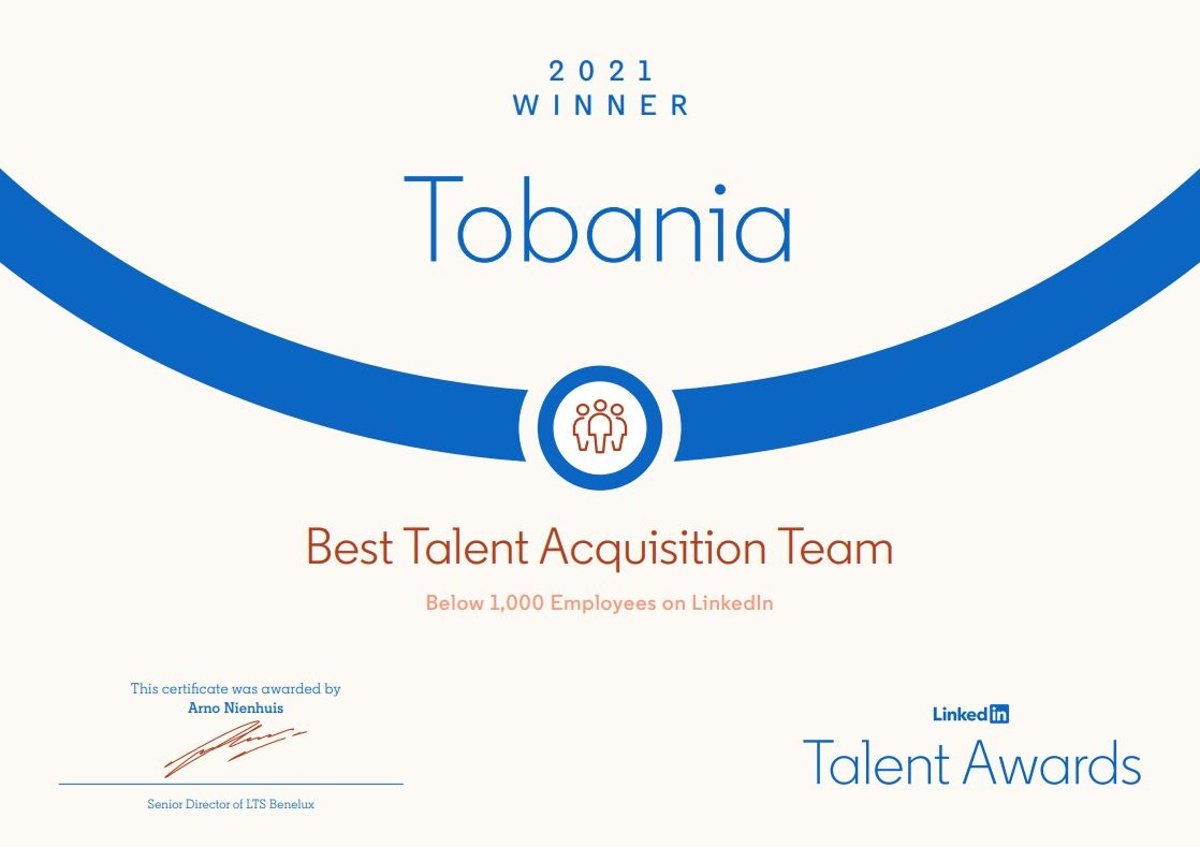How to kick off a feedback culture?
An on-the-job feedback cycle for all.
HR Talks
More insights?
Discover our insights page.
Considering the increasingly sophisticated collaboration forms, giving and receiving feedback will become an essential "skill of the future". A smart move, we believe, since it stimulates personal growth, as well as innovation and continuous learning. So, now that an extensive feedback culture may soon be at the top of your priority list as well, allow us to take a look at some best practices together.
Feedback as the backbone for a strong company culture
The way your company integrates feedback into its culture has a major impact on employee engagement. Research shows that feedback initiatives, such as annual staff surveys and regular feedback meetings, are much more common in highly engaged companies. After all, organisations with a strong feedback culture enable their employees' voices to lead to business improvements and enhance the company's overall communication.
Fair enough, but what precisely might feedback actions entail?
Feedback is all about creating a safe space …
Giving feedback involves more than just some conversation techniques. It is about creating a safe environment in which:
- people feel at ease when giving feedback;
- feedback isn't considered an attack, but an opportunity to learn and grow;
- people know their own triggers and respect the preferences of others.
Most people agree that exchanging useful feedback is a good thing, but in reality, our own brains sometimes undermine our best intentions. What our minds need to learn, is to associate feedback with growth and innovation.
… and growth
Everyone knows that by regularly asking for feedback, one can better understand what someone's strengths and weaknesses are, and what impact and perception employees can have on each other. The more often someone asks for and receives feedback, the more the brain will associate feedback with growth and development. So, challenging your teammates and employees is the key. Because a certain level of self-awareness can bring about behavioural changes that enable people to become more effective, efficient and fulfilled at work.
All set to go: create your own feedback cycle
Every single person in your organisation can contribute to creating a feedback cycle for themselves. After all, giving and receiving feedback can be found in the small things. So, to get you and your colleagues started, we would like to give you a few practical tips.
- Show people their value
Provide positive feedback by complimenting your colleagues on their performance. More importantly, show appreciation for their efforts when these result in learning and improvements. Ensuring that people feel valued and supported to learn and express themselves safely will make a significant difference and will ultimately make your team excel. At Tobania, for example, we share compliment cards: a small but powerful action.
- Get to know your colleagues
At work, we often think we should focus on completing tasks. But consciously building social connections is just as important. This could be done within your unit, customer team or in any other professional environment you are a part of. Make sure you listen to your colleagues more often, as you will get to know them better. Show genuine interest and you will be able to build a stronger bond that will improve your (team's) efficiency.
- Nurture a growth mindset around you
People with a growth mindset believe that their abilities can be developed through dedication and hard work. They consider their capabilities as a starting point and have a passion for learning. You can encourage people to develop their growth mindset by creating a safe environment in which failure leads to improvement. To give an example, have you followed an interesting training course? Share this experience with your colleagues!
- Feedforward instead of feedback
Are you providing feedback? If so, then it is better to focus on future developments rather than to judge and condemn past performance. Effective feedback starts from what is and helps to complement it. This is done by expanding what is possible, rather than simply pointing out current problems.
- Set clear expectations and make it a routine
By creating space and dialogue for regular evaluation (e.g. in team meetings), you lower the thresholds for giving and asking feedback. So, definitely make feedback part of your daily routine. After all, when feedback becomes a practice, it is anticipated more intensively. Moreover, not only will it be integrated into everyone's daily work, we will also simply become better at it.
Meet our author – Kim Van Walle, Corporate HR Director at Tobania
First started as People & Culture Manager in 2018, and now in full swing as Corporate HR Director: our Tobian Kim Van Walle never sits still, and certainly not when it comes to helping our Tobians with their growth trajectories and connectivity goals.
With our internal TOBEpulse engagement and well-being survey in mind (her favourite project by the way), Kim is constantly looking for ways to take the feedback way of working to the next level within Tobania's corporate culture.
A glimpse into Tobania's feedback culture
To best encourage 1 on 1 and team feedback, at Tobania for example, we rely on recurring retrospectives between our Tobians and their team leader, HR BP, coach or mentor on their progress, action points, achievements, obstacles and support needed to achieve their goals.
Although feedback can also be extended to a more overall level. Zooming out once in a while and involving your employees in your corporate culture can provide very exciting and important insights. Have you heard about our TOBEpulse yet? In 2021, Tobania launched this internal employee survey on well-being and key engagement drivers. Only by continuously asking for feedback, we will eventually be able to continue to improve our employee experience. Is it worth the effort? Absolutely. Based on the results, we could already launch some great new initiatives, such as the creation of a Confidential Advisor Team and the further development of our Talent & Development Framework.
Author

Kim Van Walle
Corporate HR Director
Tags
HR Talks
Related insights
I just can't get enough.
Discover our news and blogs!
Want to receive our Tobania newsletter?
Complete the form and we will send you some interesting insights.


